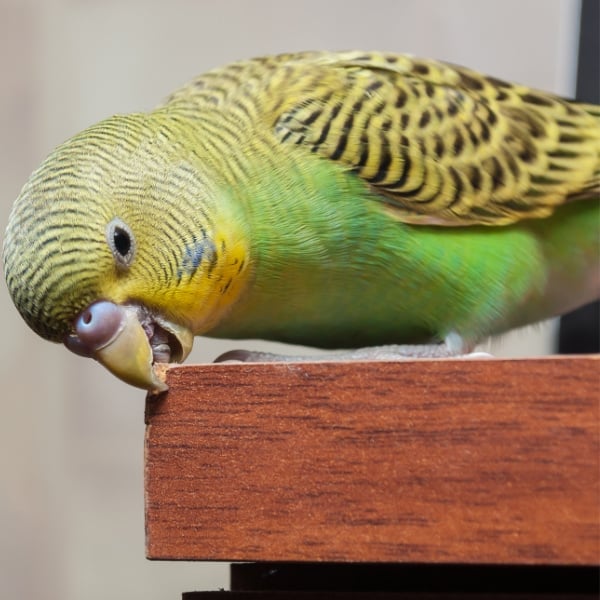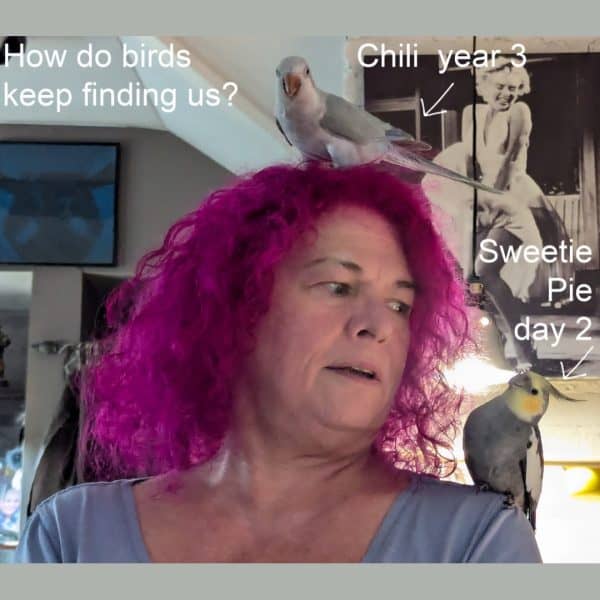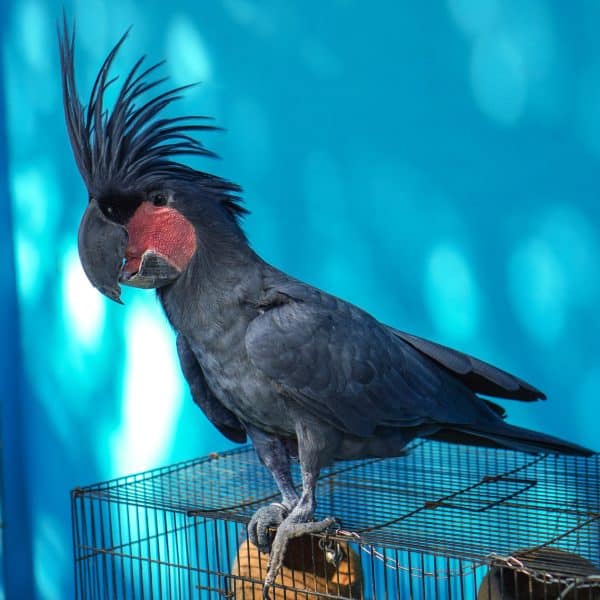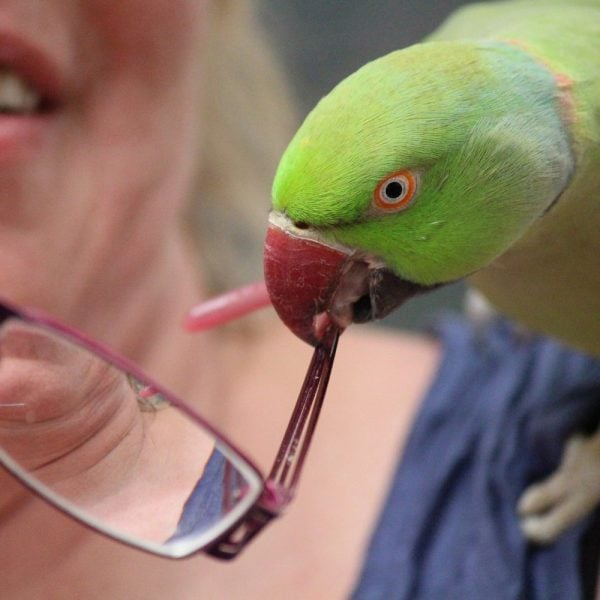Last Updated on by Catherine Tobsing
Birds have been used as organic hunting mechanisms since Genghis Khan ruled Asia.
With proper training, you can have precise control over any bird.
Mitch with Tommy
a peregrine falcon during a training session
Why are so people down and negative about the free flight of birds?
Once your bird comes out of the cage they have a lot of choices.
Chances are you are not going to walk outside and tell your bird to take a few laps otherwise something like this may happen.
So what’s the caged Bird keeper to do?
Your bird is on the cage door – what’s next?
What are your expectations and what are your bird’s expectations?
If your bird needs to move to another place the room where exactly is that place that you deem acceptable?
Where is that area in your room or your home that is okay to have poop on the floor and/or the furniture?
It’s essential to provide “landing zones” your bird is comfortable with.
Where does your bird expect to land in your home?
If your bird lands on a chair in your home and eats it. Whose fault is it?
Does your bird get car sick?
There was a long thread a couple of years ago on a parrot group on Facebook about solving car sickness and birds.
This is when they would get into the carrier the vehicle was start traveling and they regurgitated.
There were dozens of potions offered the most popular of which was ginger.
I asked three or four times what the dosage of ginger was for any given body weight in a psittacine.
The Facebook group members just kept on rambling and throwing out “try this and try that.”
So I waited till the post had lost its luster – to post my crazy solution.
Foods stay in a bird’s crop for up to six hours – this is what they are regurgitating.
By not feeding your bird for six hours prior to travel – you can avoid regurgitation totally.
Turns out all the “scientists” in the group had specifications for certain brands of ginger.
Facebook groups are not always a reliable source of pet bird care information – you’ve been warned.
MitchR
Your zygodactyl footnote
Hi Mitch,
This is where the feathers go when out of their cages.
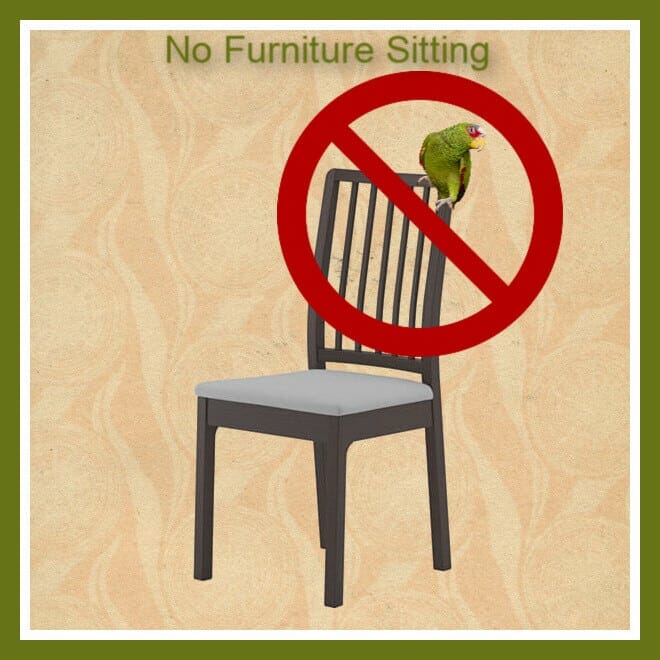
My best to you both
Arrie Hammel
Author Profile
Latest entries
 Bird BehaviorJune 13, 2025Why Do Some Parrots Struggle in Captivity?
Bird BehaviorJune 13, 2025Why Do Some Parrots Struggle in Captivity?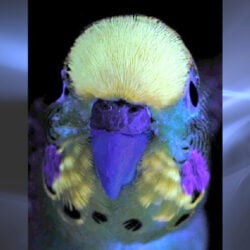 Bird & Parrot AnatomyJune 12, 2025Why are Budgerigars Called The Colorful Parrots?
Bird & Parrot AnatomyJune 12, 2025Why are Budgerigars Called The Colorful Parrots? Bird & Parrot AnatomyJune 12, 2025How Do Monk Parakeets Talk to Each Other?
Bird & Parrot AnatomyJune 12, 2025How Do Monk Parakeets Talk to Each Other?  Bird BehaviorJune 10, 2025How Cockatoos Learned to Use Drinking Fountains Like People
Bird BehaviorJune 10, 2025How Cockatoos Learned to Use Drinking Fountains Like People
